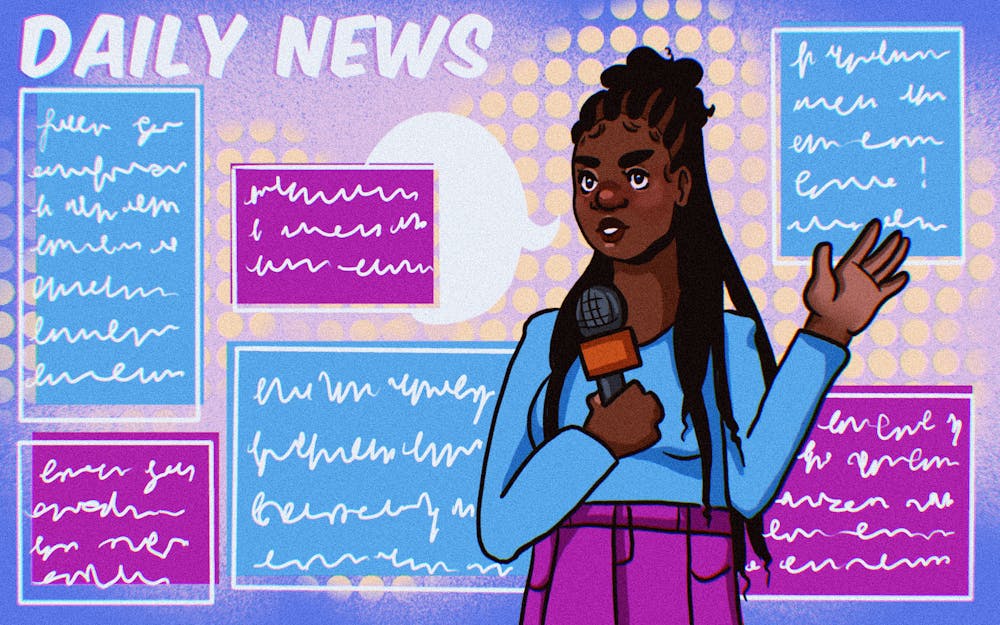There is no such thing as objective journalism.
That’s a bold statement to start with, but by no means is it a new one. In fact, Hunter S. Thompson spent much of his time defending that exact quote — it’s most clearly seen in his 1973 work “Fear and Loathing on the Campaign Trail ‘72.” He even goes so far as to call “objective journalism” a “pompous contradiction in terms.”
That is, it’s an oxymoron. And, for all of his problems, I’m inclined to agree with Thompson on that point.
Objective journalism doesn’t exist because true objectivity doesn’t exist. Every decision a journalist makes — what story to write, what angle to take, whom to interview, which quotes to use, how to write the lede, what the kicker should look like — is a subjective one. There is no possible way to make these decisions, the decisions that are at the heart of every news story, in an objective manner.
[Related: OPINION: The western press should stop lying about North Korea]
Conveniently enough, the American Press Institute agrees with me. Inspired by the book “The Elements of Journalism” by Bill Kovach and Tom Rosenstiel, the API argues that being “impartial or neutral is not a core principle of journalism.” Rather, it says, the meaning of objectivity is found in the methods with which journalists do their work: journalists cannot be objective themselves, so they must utilize consistent, transparent approaches to testing information.
Kovach and Rosenstiel dive deeper into this phenomenon in their book, even going so far as to say that the “impartial voice employed by many news organizations” is not a journalistic necessity. Neutrality, they argue, is but a voice journalists use to persuade the audience they are accurate.
If a journalist is committed to the truth and a consistent method of verification, then even a column riddled with subjective commentary can still be considered an accurate reporting of events. In fact, I would argue this sort of reporting can touch on the human condition in ways the coldly removed, almost sterile standard of coverage can’t. In a way, that makes it an even more accurate recounting.
I could continue, but then I’d worry I’m boring you with journalism theory. Don’t worry though, this talk of objectivity does relate to current issues and it does relate to how you — a news consumer — consume your news. With that being said, let’s talk about the New York Times.
[Related: OPINION: Transphobia knows no borders]
The reason I’ve spent so much time stressing the rejection of impartiality and neutrality as journalistic principles is because, frankly, I want to call bull on the major news outlets that continue to deem it necessary. This hasn’t been more evident lately than in the Times’ coverage of the transgender community, which it has often approached with skepticism at best and hostility at worst.
The Times has gone so far down the rabbit hole of “objectivity” that it has begun entertaining debates regarding human rights issues. But, is it truly objective to publish an article that seemingly argues for parents to have the final say in whether their child transitions at school?
Let me make my position on this clear: journalists do not need to present “both sides” of a story when one side is actively trying to strip liberty away from the other. There is no public interest in propaganda or lies. And there is nothing wrong with news coverage “taking a side” when that side is in favor of our unalienable rights or information backed by science.
In my experience, younger journalists like myself are the ones most comfortable with accepting these progressive ideas, while the old guard still hangs onto these notions of neutrality and objectivity as the defining tenets of the medium. It’s my hope then that, as new generations of journalists enter the industry and reject tradition, we start to see major changes in the way we tell stories.
Joey Sills (he/him) is a sophomore studying journalism and political science.





![Dean_Reingold_ltr[52] (1).jpg](https://snworksceo.imgix.net/ids/25483b05-dabd-4378-92bd-70a32c2579f0.sized-1000x1000.jpg?ar=16%3A9&w=500&dpr=2&fit=crop&crop=faces)
